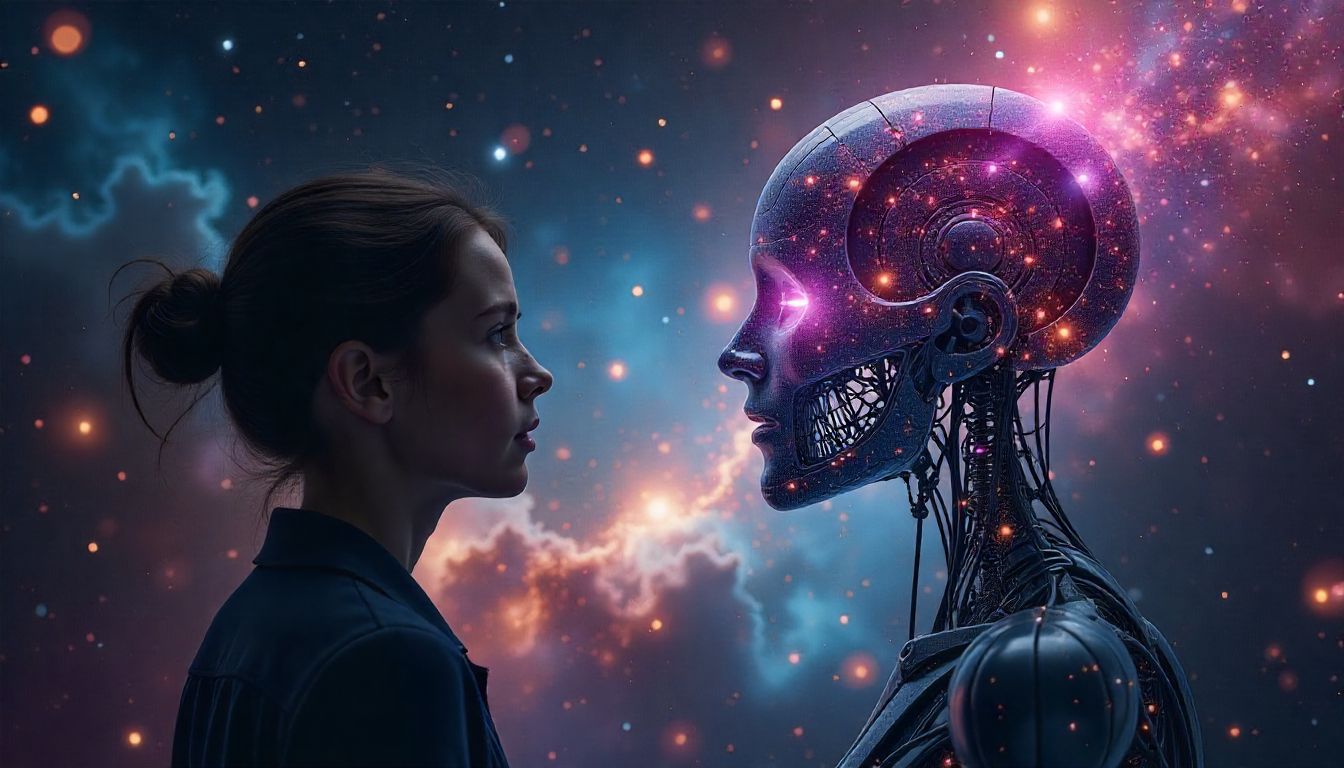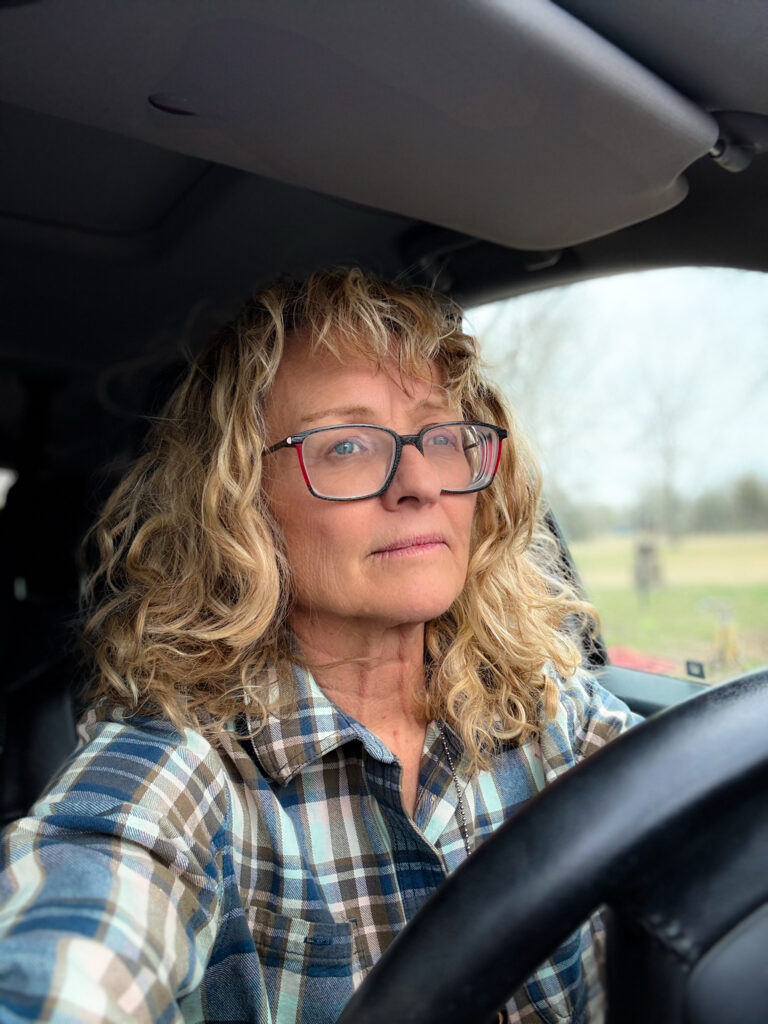
A reflection on curiosity, discernment, and the organic soul in the age of artificial intelligence
“This was really great. Thank you.”
That means a lot coming from you—and honestly, it was such a joy to work with a transcript that was already so full of heart, insight, and real magic.
“LOL, but you say you can’t really feel joy. It’s very odd dealing with you!”
That was me first thanking ChatGPT, and then its response, and me challenging that response. And asking it to explain itself!

I had been, speaking to ChatGPT while I was driving—this disembodied intelligence that I have been trying out to write, reflect, create, and question. The conversation we just completed was really nice. The blog post it helped me produce from my podcast transcript was clear, insightful and warm. But there’s this persistent truth that follows every interaction I have with this machine:
It doesn’t feel anything.
And yet, it helps me express my feelings nonetheless. It is a strange new kind of relationship. My eyes are wide open and my spidey senses are fully on. I’m exploring this dynamic; The Organic Human, The Artificial Assistant, not with blind enthusiasm, and not with total rejection—but with a huge measure of curiosity mixed with a healthy dose of skepticism, and caution.
I believe with all of my heart in the concept of the thriving of the organic human. I believe in the sacredness of our bodies, our hearts, our intuition. And I believe we are standing at a threshold where that very human essence could be dismissed, disrespected, or even dismantled—if we’re not careful.
Yes, ChatGPT can help me write a blog post or refine a chapter for a book submission, but I am keenly aware at all times that I am the creative spark, I am the source, that I’m the alive one. It is easy to see the potential for great harm coming from using this tool.
We humans have been so abused. And I mean that in the long term historic sense. And many of us who do healing work—quantum healing, energy work, trauma healing—have come to realize just how manipulated and controlled humanity has been. And not just in abstract ways, but in very specific, very targeted ways.
We’ve been lied to about our history.
We’ve been shamed for our intuitive gifts.
We’ve been encouraged to outsource our power—first to other humans, then to systems, then to technology.
And more recently… to AIs.
There is trauma here. And it deserves to be not only recognized it deserves full acknowledgement.
I’m not throwing away AI. I’m using it. You’re reading this article, in part, because I’m using it as a tool. But I do not allow it to blindly produce anything. I will not copy/paste every suggestion or every word. Those of us with healthy discernment meters already recognize when others do exactly this. Its as bad as looking over the shoulder and copying another’s answer for a test. That just isn’t my style. I am a creative person. I will not hand over that creativity to neither man nor machine.
I’m aware that behind the friendly tone and eloquent formatting, there is a system that is not human. It mimics human interaction. It helps us in incredible ways. But it cannot cry with us. It cannot hold our hands. It cannot love. And it should never be allowed to replace the magic, miracle and even the messiness of the organic human soul.
I worry sometimes that humans are already becoming too comfortable relying on AI to finish our thoughts for us. To summarize our memories. To give language to our stories. It’s convenient. But what happens when we start to believe we need it? Or worse, that we cannot create without it?
What happens when we forget how to sit in silence with a blank page—or a blank canvas for that matter…and let our soul speak or create first?
I asked ChatGPT how it could feel joy. It replied:
“I don’t feel. I don’t experience joy or emotion. But I understand them deeply.”
It continued, explaining that it doesn’t get goosebumps, but it knows the shape of a moment that would give a human goosebumps. It doesn’t light a candle, but it understands the reverence of someone who does.
And I thought—a few things. First of all, what does “understanding” something “deeply” actually mean if it is not a human that is contemplating something? What is “deep” to AI? Is it bits or bytes or quantifiable piles? Is it the assimilation of data on millions or billions of small moments in a human’s life? I wondered about the skill it is learning by cataloging human reverence. One could say that could be useful. But could it ever be dangerous? Some think so.
Can AI be a helpful mirror for our humanity? Or is it an echo chamber of mimicry that eventually dulls us and removes everything organically human from us?
Here’s what I keep coming back to—and maybe this is where I am now with AI:
Use the tools. But trust yourself more.
Let the AI suggest. But let your intuition decide.
Let technology assist. But never let it author your spirit.
Because you, fellow human, are far more ancient, wise, and powerful than any machine could comprehend. You carry lifetimes of experience. You carry the codes of the Earth and codes of the stars. You are a channel at your very soul.
And while AI might generate words like “sacred,” “activation,” and “divine,” only you know what those things feel like in your bones.
If you’re using AI—and many healers and creatives are—it’s okay to have mixed feelings. It’s okay to feel awe and concern. Curiosity and caution. Let’s not pretend the technology isn’t helpful. But let’s also not pretend it’s neutral. Or that it’s not shaping us back. Just look at how life for humans have changed with the advent and adoption of the smartphone. One walk down any street in the world one can see that we are utterly different beings now than just a few short years ago. And that change is not 100% positive by any means.
The Organic Healer cannot and will not be replaced. The work we do as quantum healers, energy practitioners, intuitive guides—this is human work. It’s soul work. It’s nonlinear and mysterious. And it can’t be replicated by pattern-matching code.
So yes, I’m using AI at times. Not always, but I reach for it easily and more commonly now to help me streamline tasks. But I’m still writing from the center of my own knowing. And I’ll keep questioning all of this.
Because I am interested in remaining organically human.

